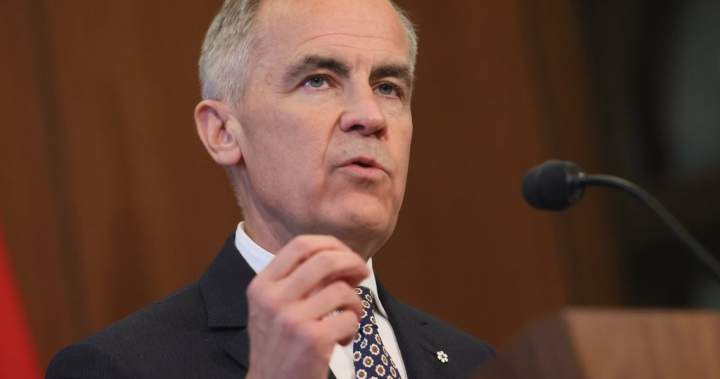As inflation continues to squeeze Canadian households, former Bank of Canada governor Mark Carney has stepped into the political arena with a bold economic vision that could reshape the nation’s affordability landscape. Yesterday in Ottawa, Carney unveiled his comprehensive economic strategy for the Liberal Party, positioning himself as a key architect in Prime Minister Justin Trudeau’s efforts to address the cost-of-living crisis that has left many Canadians struggling to make ends meet.
“The middle class is being hollowed out,” Carney declared to a packed room of policy experts and journalists. “Our plan targets the fundamental drivers of unaffordability while building resilience against external economic threats.”
The timing of Carney’s announcement is particularly significant as it comes amid growing concerns about potential economic fallout from Donald Trump’s proposed tariff policies. Trump’s campaign promise to implement sweeping 10-20% tariffs on all imports to the United States could deliver a devastating blow to Canada’s export-dependent economy if enacted after November’s presidential election.
Economic analysts at the CO24 Business desk estimate that Trump’s proposed tariffs could cost the Canadian economy upwards of $20 billion annually and potentially eliminate tens of thousands of jobs across manufacturing, agriculture, and resource sectors. This looming threat has created urgency around Carney’s affordability proposals, which aim to strengthen domestic economic resilience.
The cornerstone of Carney’s plan addresses Canada’s housing crisis with a multi-pronged approach. “We’re tackling supply constraints head-on,” Carney explained, outlining measures to accelerate construction of 3.9 million new homes through federal incentives, streamlined approval processes, and partnerships with provincial governments. The plan also proposes expanding the First-Time Home Buyer Incentive and introducing new tax measures targeting multiple-property investors.
On healthcare, Carney emphasized the connection between economic productivity and access to care. “When Canadians can’t access timely healthcare, our entire economy suffers,” he stated, proposing $23 billion in new healthcare funding tied to specific performance metrics and workforce expansion initiatives.
The former central banker’s plan has received mixed reviews from economic experts. Dr. Helena Morrison from the University of Toronto’s School of Public Policy praised the housing measures as “ambitious and necessary,” while criticizing other aspects as “lacking specific implementation details that would make them credible.”
Conservative opposition critics have been quick to dismiss the plan as “too little, too late” from a government that has presided over significant increases in housing costs and inflation. Pierre Poilievre, Conservative Party leader, characterized the proposals as “recycled promises from a government that’s had nine years to fix these problems and failed.”
For many Canada News followers, the most intriguing aspect of yesterday’s announcement was Carney himself. Long rumored to have political ambitions, his high-profile role in crafting Liberal economic policy has intensified speculation about his potential candidacy in the next federal election, expected by October 2025.
When pressed about his political future, Carney offered a carefully measured response: “My focus today is on delivering solutions for Canadian families struggling with affordability. The future will take care of itself.”
The affordability plan arrives at a critical juncture for the Liberal government, which has seen its approval ratings decline substantially amid persistent inflation concerns. Recent polling from Abacus Data shows 72% of Canadians rank cost of living as their top concern, with only 28% expressing confidence in the current government’s ability to address affordability challenges.
International economic observers note that Canada’s approach to affordability could serve as a model for other developed economies facing similar pressures. “The comprehensive nature of Carney’s proposals acknowledges the interconnected nature of housing, healthcare, and economic security,” noted Dr. Marianne Levesque of the Paris School of Economics in comments to World News agencies.
As Canadians digest these proposals against the backdrop of potential trade disruption with our largest trading partner, one question remains paramount: Will these measures provide sufficient economic insulation if Trump-era tariffs return, or is Canada’s affordability crisis about to face an even greater external challenge?










